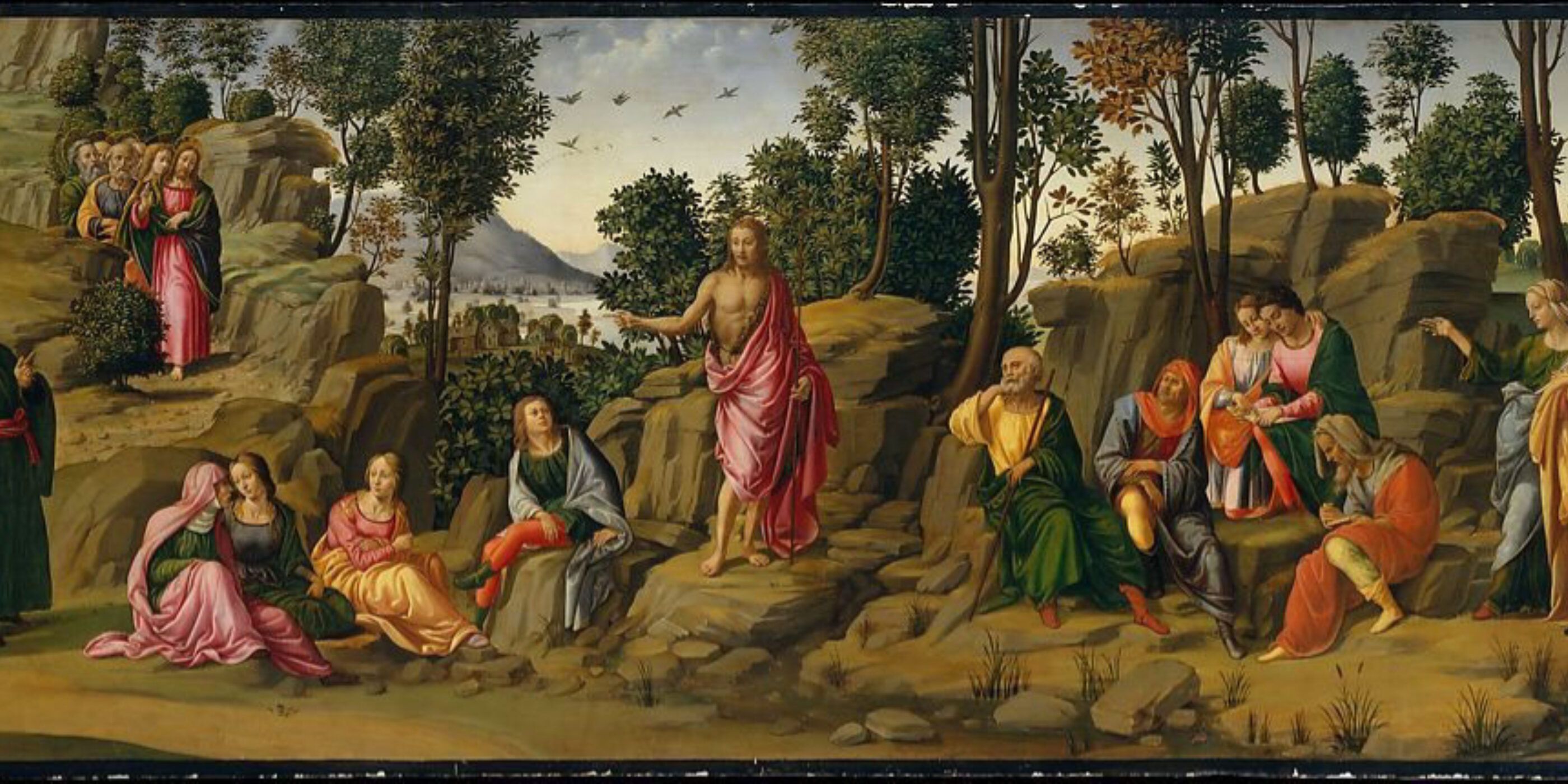By: Fr. Peter Stamm, Director of Sacred Liturgy
The figure of St. John the Baptist towers over the liturgy of Advent, and like the people of Jerusalem who first went out to see him, we might be a bit puzzled by this man. The Gospel specifically mentions his startling appearance - wearing camel hair clothing, living in the desert, eating locusts and wild honey. If you saw this guy walking down the street towards you, you might feel tempted to cross to the other side.
Indeed, seen through twenty-first century eyes, John the Baptist would appear to embody everything our secular contemporaries fear about religion - that it’s bizarre, extreme, harsh, disconnected from reality, irrational. But St. John’s appearance had a specific meaning and message for the people who went out to see him in the first century A.D.
His camel hair outfit identified him as a prophet, specifically a prophet like Elijah who was known to have dressed that way. His food was that of a hermit, someone who dwelled in the desert to seek God with an undivided heart. Because a prophet had stepped outside of the normal bounds of society, he wasn’t seen as weird. In fact, his judgment was respected the most, since he wasn’t caught up in the tangle and fray of the city. His job wasn’t simply speaking about the future. Standing at a more objective angle, the prophet could critique the people and point out things that they might not have noticed about themselves. He could speak God’s word to them because he had reordered his life to be all about listening to God. Having stripped away the blinders of ordinary life, the prophet had acquired the ability to go beneath the surface of things. He could get to the heart of the matter in direct and unvarnished words. And this is why the people were pouring out of the city to see John. It wasn’t that he was a sideshow. His was a voice that could help them, a voice that could change their lives for the better.

The evangelists, who wrote the Gospels, knew that the words John spoke had power and would be something that future generations would want to hear. And so John’s words come down the centuries to us today, still full of power, still full of potential to transform our lives.
“A voice of one crying out in the desert: Prepare the way of the Lord, make straight His paths.” “Repent, for the kingdom of heaven is at hand.” “Produce good fruit as evidence of your repentance.” Jesus didn’t spring upon the world unannounced. He gave people fair warning that He was coming. And for us, Christmas isn’t meant to come upon us all of a sudden. We have time to prepare, time to clear the way for the coming of Christ. This privileged season is Advent, which performs for us as a Church the function which John performed for the people of his day.
For years now, Lake Street in front of the seminary has been under construction. Jackhammers, ladders, steel plates, gravel. It’s been kind of maddening at times. But really, this construction is a good visual reminder of what our interior lives should be like if we heed the summons of John the Baptist: prepare the way, make straight the paths of the Lord! Embrace the disruption of old routines of sin and negligence. Welcome the slow, deliberate reshaping by which grace makes all things new.
Advent and Lent are two great times of year to do a little spiritual construction - clearing obstacles that we place to God’s path into our lives. They are, as Pope Leo the Great has remarked, a time to do what Christians should be doing year-round but with greater intensity. Building up virtues - those good habits that help us to fully flourish and use our freedom for excellence. Making adjustments. Trying something new.
In our Second Reading, St. Paul reminded us that ours is a “God of endurance and encouragement.” It’s deserves to be emphasized - God wants you to be encouraged. He looks upon each of us with love and encourages us. He’s a proud Father who loves His children. God is proud of your accomplishments. He loves the good things you do. He is gladdened by your good desires - to be men and women of authenticity and integrity, to be His disciples, to continue always growing.
So, for us to think about in this coming week - Where is the construction zone within my mind and heart? What needs to be bulldozed and what needs to be built up? Are the roads to my heart wide open to God, or do we need to add another lane, widen the road a bit?
May God, who has loved you since before you were born, encourage you to make the choices that bind you more closely to Him. And may the Eucharist we receive today firmly establish the kingdom of heaven within us, for the Lord is near at hand.

